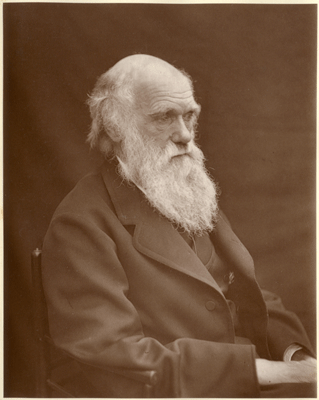Through his theory of evolution, Charles Darwin became one of the most eminent scientists in the world. Here are 10 things you should know about him.
Charles Darwin is credited with changing the way we think about the natural world and our place in it, but just how much do you know about the great Briton? Here are some useful facts on one of Britain’s most prolific scientists, so you can show off to your friends.
He was born in Shrewsbury
Born on 12 February 1809, Darwin lived in the Shropshire town of Shrewsbury until he was 27. The town still proudly celebrates its most famous son; this year the Darwin Festival will take place from 8-22 February.
He shares a birthday
Darwin was born on exactly the same day as another famous person in history, Abraham Lincoln – the 16th President of the United States.
He has a famous family
Charles’s grandfather on his mother’s side was Josiah Wedgwood, founder of the famous pottery company and a prominent abolitionist, while his grandfather on his father’s side was Erasmus Darwin, a leading thinker of 18th century England. Erasmus was also a slave-trade abolitionist and a poet whose writings included thoughts on natural history and evolution, so perhaps Charles’s rise to greatness was to be expected.
He could have been a doctor
Darwin initially pursued a career in medicine, spending a summer as an apprentice doctor before going on to study at the University of Edinburgh Medical School, but he began to neglect his studies and his father sent him to Christ’s College Cambridge to study for a life in Holy Orders.
Other books influenced his ideas
It was from Cambridge in 1831 that Charles joined a scientific expedition aboard the HMS Beagle, which lasted almost five years. It was on this journey that he read Lyell’s Principles of Geology, which further opened his eyes to ideas of evolution, and when he reached the Galapagos Islands he observed slight variations in tortoises and mockingbirds from island to island, which led him to question the origin of the species.
He married his cousin
On 29 January 1939, Darwin married his cousin Emma Wedgwood and they went on to have 10 children, two of whom died in infancy, and one, Annie, who died aged 10.
His theory was a work in progress
Darwin worked on his theory of evolution for 20 years and it wasn’t until 1859 – 50 years after his birth – that he published On the Origin of Species by Means of Natural Selection.
His book caused controversy
Darwin’s seminal book was not celebrated immediately but was extremely controversial for its time, destroying as it did the prevailing view until then that man had been created by God, and instead putting forward the idea that he had evolved from apes. Fierce debates on his work raged but he was eventually awarded the Royal Society’s Copley Medal on 3 November 1864, British science’s highest honour.
His life was marred by illness
Darwin was frequently laid up with stomach pains and palpitations throughout his life, often put down to his tendency to overwork, and in 1882 he was diagnosed with heart disease, which he died shortly after of.
He is buried in Westminster Abbey
Darwin died on 19 April 1882 and it was initially expected that he would be buried in St Mary’s churchyard in Downe, but following petitioning by his colleagues and the public, he was eventually buried in Westminster Abbey.
Related articlesThe life and times of Charles Dickens |
Click here to subscribe! |






 © 2024
© 2024